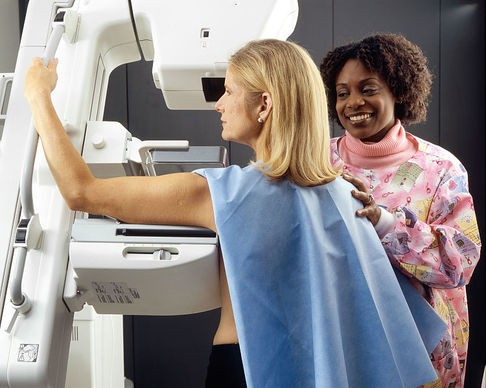MORE ON THE LINK BETWEEN MAMMOGRAPHY, OVERDIAGNOSIS AND BREAST CANCER
“Where there’s smoke, there’s fire —- and where there’s Overdiagnosis, there’s Overtreatment. Unfortunately, where there’s Overtreatment, there are more funerals.” Dr. Russell Schierling
The brand new issue of one of the journals put out by the American Medical Association (JAMA Internal Medicine) carried a study done at Harvard University and called Breast Cancer Screening, Incidence, and Mortality Across US Counties. The study involved, “16 million women 40 years or older who resided in 547 counties reporting to the Surveillance, Epidemiology, and End Results cancer registries during the year 2000. Of these women, 53,207 were diagnosed with breast cancer that year and followed up for the next 10 years.” The powers that be were wanting to know whether or not having a mammogram in the two years prior to a Breast Cancer diagnosis had any effect on the outcome. To put it another way, they were wondering if mammograms helped prevent deaths caused by BREAST CANCER.
What they found was that mammography only increased the pysicians’s ability to find larger tumors slightly. However, it increased the discovery of smaller tumors by 25%. On the surface, this sounds good — maybe even wonderful. But here’s the rub. The authors concluded that, “the clearest result of mammography screening is the diagnosis of additional small cancers. Furthermore, there is no concomitant decline in the detection of larger cancers, which might explain the absence of any significant difference in the overall rate of death from the disease. Together, these findings suggest widespread overdiagnosis.”
Think about this for a moment. Even though mammograms are catching many more cases of Breast Cancer than not having mammograms, the death rate remains unaffected. How can this be? It all has to do with understanding the term “Overdiagnosis”. Overdiagnosis is explained in the first paragraph of the March, 2015 issue of the British Medical Journal (The Challenge of Overdiagnosis Begins With its Definition).
“The implicit social contract underpinning healthcare is that it will reduce illness and preventable death and improve quality of life. But sometimes these promises are not delivered. Sometimes health services take people who don’t need intervention, subject them to tests, label them as sick or at risk, provide unnecessary treatments, tell them to live differently, or insist on monitoring them regularly. These interventions don’t improve things for people; they produce complications or illness, reduce quality of life, or even cause premature death. Active health intervention is not always a good thing: it can be “too much medicine,” or produce what is often called overdiagnosis. Although the concept of overdiagnosis has been described in the literature for nearly 50 years in relation to cancer screening, it was Welch and colleagues’ 2011 book, Overdiagnosed: Making People Sick in the Pursuit of Health, that popularized the term. Overdiagnosis is now an acknowledged problem for patients, clinicians, researchers, and policymakers; it is discussed in journals, and at specialist conferences, and addressed through policy and practice initiatives.”
Webster’s makes things easier, defining Overdiagnosis as, “the diagnosis of a condition or disease more often than it is actually present.” Although this might not sound like a big deal, we know that medical treatment — especially when it comes to treating CANCER (or “Overtreating” as the case may be) — CAN BE QUITE HARSH. The goal is to use Chemo and Radiation to kill the Cancer; hopefully before it kills you first; often bringing patients to the brink of death. Unfortunately, we are seeing that many more people than we are led to believe cross that brink (HERE).
When we factor Overdiagnosis and the subsequent Overtreatment into the equation, we see that annual mammograms for the general population are a wash — something the authors of this study admitted (see the quote at the top of the page). “There are increasing concerns that screening unintentionally leads to overdiagnosis by identifying small, indolent, or regressive breast tumors that would not otherwise become clinically apparent [relevant].” The end result is that as many people die of Overtreatment, as are saved by early detection. Like I said, a wash.
Whether or not you chose to have mammograms done on a regular basis is your business. There are, however, any number of things you can do to prevent Cancer from happening in the first place — or DEAL WITH IT EFFECTIVELY if it does. Firstly, don’t take Antibiotics, as they have been linked to higher rates of Cancer (HERE). Secondly, avoid XENOHORMONES (or HERE) like the plague they are. And thirdly, change your diet and lifestyle. Not sure where to start? Try THIS APPROACH. It may keep you from becoming another casualty of EVIDENCE-BASED MEDICINE.

